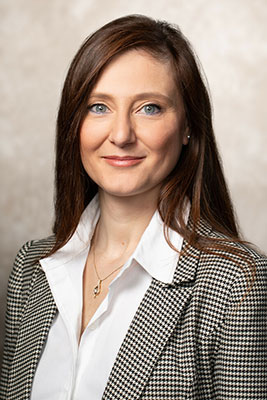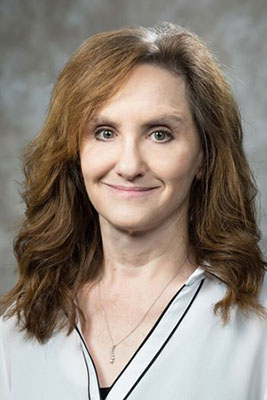Finance and Administration
Staff Senate Members in the Finance and Administration Division
Michela Cupello
 Since 2016, I have worked at the University of Arkansas. I am the mother of a 16-month-old
boy and a licensed architect. I worked in the private sector for years before joining
the Community Design Center, an outreach program of the Fay Jones School of Architecture
+ Design, and then the Facilities Management Planning and Design group, where I currently
work as a campus planner. I currently chair the Chancellor's Commission on Women and
I have served in the Staff Senate since 2018, where I chair the Parking, Transit,
and Safety Committee.
Since 2016, I have worked at the University of Arkansas. I am the mother of a 16-month-old
boy and a licensed architect. I worked in the private sector for years before joining
the Community Design Center, an outreach program of the Fay Jones School of Architecture
+ Design, and then the Facilities Management Planning and Design group, where I currently
work as a campus planner. I currently chair the Chancellor's Commission on Women and
I have served in the Staff Senate since 2018, where I chair the Parking, Transit,
and Safety Committee.
Volunteering and contributing to the Staff Senate and the Chancellor’s Commission on Women is a valuable way to use my knowledge, skills, and strengths, and to serve the community where I’m living and working.
Ruth Parcells
Embracing new challenges amid the pandemic, Ruth ventured to the University of Arkansas, where she currently serves as the Senior Specialist Governance, Risk, and Compliance Officer. Here, she spearheads the institution's data security initiatives, crafting cybersecurity policies, and providing comprehensive training programs, showcasing her unwavering dedication to advancing cybersecurity awareness and education.
Previously, Ruth worked at the University of Virginia and held various roles in Audit, Compliance, and Advancement for over fourteen years.
Ruth's involvement with the Staff Senate at the University of Arkansas is driven by a genuine desire to make a difference and support her colleagues. She finds fulfillment in contributing to various events and initiatives organized by the Senate, enjoying the opportunity to play a part in enhancing campus life.
Her dedication to the Staff Senate is rooted in a passion for advocacy and a commitment to addressing staff concerns. Ruth values the platform the Senate provides for staff to voice their opinions and address issues affecting them directly. With a pragmatic approach and a focus on tangible outcomes, she sees her role as an opportunity to effect positive change and promote a more inclusive and supportive environment for all staff members at the university.
Shannon Siebler
 My background in education is extensive. I have a B.S. in Education and began working
part-time for the local school system. Once I earned my degree, I started teaching
middle school and then high school. Next, after spending ten years teaching, I moved
to the Northwest Arkansas area where I began working at NWACC. I worked there for
over seven years as a coordinator and then director of the Testing Center. While working
as a director and teaching for them part-time, I earned my M.Ed. here at UARK in Higher
Education. I began working for the Global Campus in 2016 and moved to Human Resources
in 2021. I currently work in Talent Development as an Onboarding Specialist facilitating
New Employee Orientation, Workday 101 and building a one-year onboarding plan for
new staff.
My background in education is extensive. I have a B.S. in Education and began working
part-time for the local school system. Once I earned my degree, I started teaching
middle school and then high school. Next, after spending ten years teaching, I moved
to the Northwest Arkansas area where I began working at NWACC. I worked there for
over seven years as a coordinator and then director of the Testing Center. While working
as a director and teaching for them part-time, I earned my M.Ed. here at UARK in Higher
Education. I began working for the Global Campus in 2016 and moved to Human Resources
in 2021. I currently work in Talent Development as an Onboarding Specialist facilitating
New Employee Orientation, Workday 101 and building a one-year onboarding plan for
new staff.
I am excited to be involved in learning more about policies and plans for current and future employees. I would like staff to feel like they have a voice in policy and initiatives.